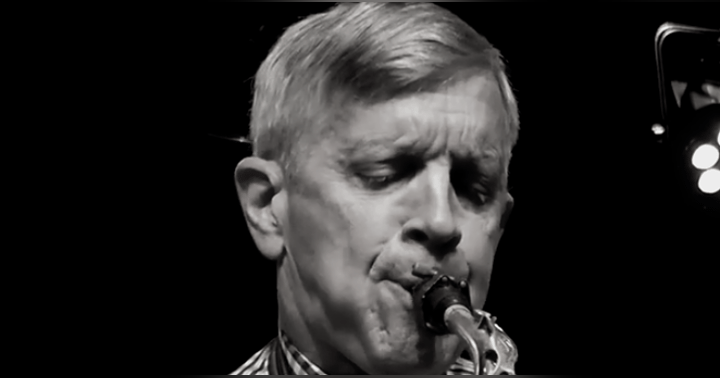Rhythmic Vocabulary, 1

Greetings JazzPianoSkills Fam!
Last week's podcast episode addressed the importance (and need) to seriously think about, study, practice, and develop Rhythmic Vocabulary. Rhythm, without question, is the most neglected aspect of music from both teacher and student perspectives. We (teachers) love to talk about melody (composition/improvisation) and harmony (voicings/chord substitutions) but rarely do we devote time to the exploration of rhythm. And, likewise, students love to devote hours to practicing melodies (tunes/transcriptions) and harmony (voicings/progressions). But rarely, if ever, do we place rhythm on the musical pedestal that it rightfully deserves. Not only that, we tend to not give rhythm the time of day! Sad, because rhythm, is, without doubt, the hinge pin that melody and harmony hang - without it, music ceases to be music.
Here's a story to validate my rhythm proclamation. A current student of mine is learning how to improvise and of course, what better way to begin cutting your improvisational teeth than experimenting with the Blues Scale over a standard Blues Progression. So armed with John Coltrane's "Mr. P.C." (a minor blues) we set off to discover, learn, and play some jazz vocabulary. We started with a very comfy tempo of 120 and the six notes of the minor blues scale and only the six notes of the blues scale. We agreed that we would trade choruses (I would improvise for twelve measures and then he would improvise for twelve measures). So after playing the head (the melody) I took the first solo sticking to the six notes of the blues scale and then it was his turn. After several measures of the blues, I noticed that he was not playing. I stopped the play-along track we were using and asked him, "what's up - why no improvisation?" His reply, "I have nothing." I said, "nothing?", he said, "nothing!" I then said, "OK, let's do this, let's cut the blues scale in half, and let's use only the first four notes of the blues scale to improvise (not exactly half of the scale but you get the point). He smiled, breathed a sigh of relief, and said, "great!". I started the play-along track again and once again, I took the first solo. Now it's his turn and once again, silence. I stopped the play-along track and said, "now what?" He said, "I have nothing" My response was, "Dude, how is this possible? Play any of the four notes and you'll sound great - you can not make a mistake because the four notes we are isolating to play fit beautifully over the entire blues form". He said, "I get it, but I still have nothing". I thought, wow, this is interesting - he knows the notes to play but can't come up with anything to play. So, I suggested, "let's cut our half of blues scale in half leaving us with two notes!" I got a huge smile and he appeared to be extremely relieved and excited. So once again, I start the play-along track, and off we went - I took the first solo, and now it's time for him to use the two notes (root and 3rd) to create some musical motifs (ideas). Once again, halfway through his solo, I heard nothing because he was not playing. I stopped the play-along track and said, "let me guess, you have nothing". He grinned and said, "yep, nothing". Now I am at the end of my rope - I said OK, "let's take the half of the blues scale that we cut in half (leaving us with two notes), and cut it in half one more time (which of course left us with one note - the root!). I thought to myself, certainly, he will be able to improvise now and experience success! So, once again I start the play-along track, and once again, I improvised over the first twelve bars (measures). I'm super excited to hear his improvisation and what did I hear - you got it, I heard, nothing! I immediately stop the play-along track and before I could even utter a single word, he says, "I got nothing".
Interesting story indeed but what does this exchange tell us? Quite simply it tells us that the reason he had difficulty improvising was not because of a lack of chord/scale relationship understanding and not because he had no idea with regards as to what notes to play (for heaven's sake, I stripped him down to one note!). He had difficulty improvising because he had no Rhythmic Vocabulary! Even with being restricted to a one-note option, he had no idea as to how to use it (rhythm). AND, this is precisely why we all need to spend time (significant time) developing Rhythmic Vocabulary. AND, this is precisely the objective of last week's podcast episode - to focus on playing standard quarter/eighth note rhythmic patterns using scale motion from the root through the 7th of the sound ascending and descending. In doing so we begin to think about and hear rhythm linearly which is the key to developing mature improvisational lines (melodies).
So enjoy this podcast episode exploring Rhythmic Vocabulary (take it seriously!) and if you are a JazzPianoSkills Member be sure to use the Podcast Packets (Illustrations, Lead Sheets, and Play Alongs) for this episode to help you maximize your musical growth.
Thanks for being a JazzPianoSkills Member. It is my pleasure to help you discover, learn, and play jazz piano!
Warm Regards,
Dr. Bob Lawrence
JazzPianoSkills


